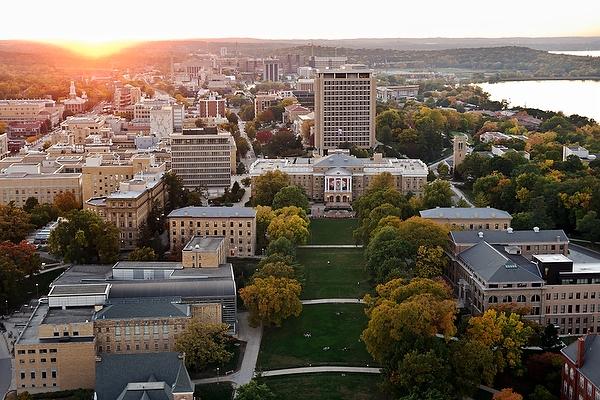Not every high school offers language classes in Arabic and Japanese.
Through the Language Institute at the University of Wisconsin, UW students are tutoring Wisconsin high school students in Arabic and Japanese via Skype, allowing them to explore languages and cultures not frequently offered at the high school level.
Wendy Johnson, the assistant director for the institute, said high schools in the Madison area offer independent study courses in languages such as Arabic and Japanese under the guidance of a French or Spanish teacher. Because the students do not have conversation partners, their language skills benefit from a proficient speaker in the language.
“I recruited a small group of UW students who meet weekly with the students at those high schools by Skype,” Johnson said. “They provide pronunciation help, some conversation practice and answer questions that their [high school] teachers cannot answer.”
Claudine Clark, the world language department chair at Madison East High School, said fluency in Japanese and Arabic languages hinges on contact with native speaking tutors.
Clark said at the start of each school year she sends out an email to universities in the area requesting tutors in these language areas her high school students study independently.
“The program connects students with not only a language tutor they can practice with and ask questions, but also gives them insight into where they can go next as university students,” Clark said. “My high school students are seeing themselves in their future as language learners.”
Kaylah Cruz-Herrera, a UW Skype tutor, said being able to work through the language and answer questions for students has given them more confidence in the language.
Herrera said since she too has been in the students’ shoes when starting a new language, she understands their position and uplifts them to continue study of the language.
“I think what is most beneficial is being able to practice speaking Arabic [with someone] who also can,” Herrera said. “I think it is important that they are getting more confidence in studying Arabic because it can be a little intimidating.”
The tutors involved are all in their third or fourth year of their language and studied in an intensive setting, so they are all fully equipped to help younger students, Johnson said. The experience is not only beneficial to the high school students as the UW students involved can use their tutoring experience and mentoring in a number of professional experiences post-graduation, she said.
“Just the idea that students can grab onto global communities through languages that interest them opens up new doors that maybe weren’t as accessible before these languages were introduced in our high schools,” said Clark.
Johnson also coordinates another program called “Language Experience!” which invites high school groups to campus to observe UW language classes and become more acquainted with language-related academic opportunities, she said.
These students are invited to UW with the hope that they will consider picking up another language, whether in high school or college, and will come to see college level language study as an achievable goal, Johnson said.
“In all the talk of globalization there is more of a movement between people of different countries now,” Johnson said. “Americans should be prepared for that and language studies is a great way to do it. We learn intercultural competencies that will help us interact with those different from us.”














